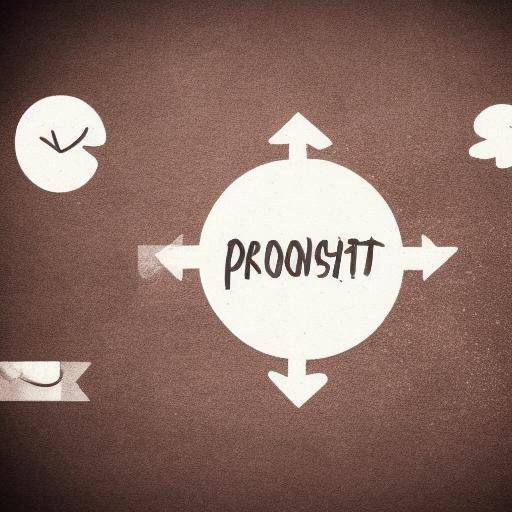
Interaction with others plays a fundamental role in almost all aspects of our life, whether in the personal, professional, or social spheres. Interpersonal skills, including effective communication, empathy, and conflict resolution capacity, are essential for healthy and productive relationships. In this article, we will explore in depth how the practice of meditation can contribute significantly to improving these skills, as well as their impact on individual productivity. We will discover how meditation can enhance our interpersonal skills, foster greater emotional and mental well-being, and promote a more harmonious and productive working environment.
Introduction
Meditation, a practice that has been part of various cultural and spiritual traditions for centuries, has gained recognition and popularity throughout the world in recent years. Its positive impact on stress management, concentration and general well-being has been widely documented. However, their influence on the development of interpersonal skills and productivity is seldom discussed to the same extent. In this article, we will explore how meditation can positively affect the way we relate to others and how this improvement in interpersonal skills can lead to an increase in productivity in both personal and professional fields.
History and background
The practice of meditation dates back thousands of years, and its origins intertwine with various spiritual and philosophical traditions throughout the world. From ancient India to Buddhism, Taoism, and Yoga, meditation has been a fundamental tool for spiritual growth and emotional well-being. Throughout history, influential figures such as Buddha, Confucius, and various spiritual teachers have advocated for the practice of meditation as a path to enlightenment and inner harmony. As it spread through different cultures, meditation continued to evolve, adapting to the needs and beliefs of the people who practiced it.
Now, in the modern era, meditation has transcended cultural and religious borders, largely thanks to scientific research that supports their benefits for mental and emotional health. Recent studies have shown that meditation can lead to lasting changes in the brain, improving emotional regulation, empathy, and attention capacity. These findings have sparked renewed interest in meditation, and their adoption has grown exponentially in non-religious environments, including companies, schools, and health care organizations.
In-depth analysis
Meditation has proven to be a powerful tool to improve interpersonal skills. By cultivating full consciousness and compassion, meditation strengthens the ability to understand one's own and others' emotions, thus fostering a clearer and more empathic communication. These benefits are not only reflected in personal interactions, but also in the working environment, where the ability to lead, collaborate and resolve conflicts effectively is essential for individual and organizational success. In addition, meditation helps reduce stress and anxiety, which in turn allows more weighted decision-making and greater creativity.
In considering the relationship between meditation and productivity, it is important to note that emotional and mental well-being is a crucial component of labour performance. The ability to handle pressure, maintain concentration, and make informed decisions is reinforced by a clear and balanced mind, which meditation can promote. Meditation also promotes greater awareness of the present moment, which can increase efficiency in performing tasks, reducing the tendency to distraction and procrastination.
Comprehensive review
When applied effectively, meditation can play a transformative role in the way we relate to others, as well as in our ability to perform optimally in different contexts. By integrating meditation practice into daily life, it is possible to develop stronger interpersonal skills, which in turn can have a positive impact on personal and professional productivity.
Furthermore, the approach that promotes meditation can transcend individual limits and extend to group dynamics, improving communication and conflict resolution in working environments. This collective influence can contribute significantly to a general increase in the productivity and effectiveness of work teams.
Comparative analysis
By comparing interpersonal skills, meditation and productivity, you can see that these elements are interconnected in an inherent way. Interpersonal skills, such as empathy and active listening, are fundamental to building solid relationships both in the personal and in the professional. In turn, meditation can strengthen these skills by promoting greater awareness of our own thoughts and emotions, which in turn can positively influence productivity by reducing stress and fostering a clear and focused mentality.
In this sense, meditation not only improves productivity at the individual level, but can also transform the dynamics of teams and organizations through improved communication, conflict resolution and group cohesion.
Practical advice and recommendations for action
For those interested in exploring how meditation can positively impact their interpersonal skills and productivity, the following practical tips are offered:
- Start a regular meditation practice: Dedicating daily time to meditation can lead to significant advances in improving interpersonal skills and productivity.
- Participate in mindfulness training programs: Many companies and organizations offer training in mindfulness and meditation, which can be an excellent way to integrate these practices into the working environment.
- Looking for community support: Joining meditation groups or communities of practice can provide an environment of mutual support and learning.
- Explore online resources: There is a wide variety of online resources, such as meditation applications and courses, which can help establish and maintain a regular meditation practice.
- Practice empathy and active listening: Incorporating meditation into everyday life can cultivate greater understanding and consideration by others, which in turn can strengthen interpersonal skills and productivity.
Conclusions
In short, meditation, by promoting greater awareness and emotional balance, can play a crucial role in improving interpersonal skills and productivity. By developing a deeper understanding of oneself and others, through meditation, it is possible to foster healthier and more constructive relationships, both in the personal and professional spheres. This improvement in interpersonal skills, in turn, can contribute to a significant increase in productivity and overall well-being.
As organizations and individuals continue to seek ways to thrive in increasingly demanding working environments, meditation emerges as a powerful tool to foster strong interpersonal skills and improve productivity. By incorporating meditation in a conscious and systematic way, it is possible to cultivate a more harmonious and effective working environment that promotes both personal growth and organizational success.
FAQs
**1. How can meditation improve interpersonal skills at work?**Meditation can improve interpersonal skills by fostering greater empathy, understanding and emotional management, which can lead to more effective communication and healthier working relationships.
**2. What meditation techniques are especially beneficial for the development of interpersonal skills?**In terms of interpersonal skills, meditation techniques that emphasize full consciousness, compassion and listening can be particularly beneficial. These techniques can help strengthen emotional connection with others and develop greater sensitivity to the needs and perspectives of those around us.
**3. Can meditation positively affect conflict resolution at work?**Yes, the practice of meditation can contribute to conflict resolution by promoting greater mental clarity, more effective emotional regulation and a more constructive approach to addressing interpersonal challenges.
**4. Are there scientific research supporting the relationship between meditation, interpersonal skills and productivity?**Yes, several scientific researches have demonstrated the benefits of meditation in the development of interpersonal skills and their positive impact on productivity. Studies have shown that regular meditation practice can lead to significant improvements in communication, empathy and decision-making in working environments.
**5. Can meditation benefit individual productivity at work?**Yes, meditation can benefit individual productivity by improving concentration capacity, reducing stress and fostering clearer and more balanced decision-making. These effects can lead to an increase in personal efficiency and quality of work.
**6. How can I integrate meditation into my daily routine to improve my interpersonal skills and my productivity?**Integrating meditation into your daily routine can be achieved by assigning time to practice meditation, either in the morning before starting the day of work or as a pause to recharge during the day. Consistency and perseverance in practice are key to reaping long-term benefits.
Conclusion and final reflection
Meditation, being a practice that promotes introspection, self-knowledge and empathy, can be a powerful catalyst to improve our interpersonal skills and our productivity at work. By cultivating greater awareness and emotional balance, we can not only improve our relationships with others, but also maximize our performance in the workplace.
It is important to recognize that meditation not only has individual benefits, but can have a transformative impact on organizational culture and the dynamics of work teams. In fostering the practice of meditation, organizations can contribute to the overall well-being of their employees, while promoting a more harmonious, effective and productive working environment.
Ultimately, meditation offers a way for personal and professional flourishing, raising the quality of our human interactions and enhancing our ability to confront the challenges of the working world with clarity, empathy and effectiveness.






















































